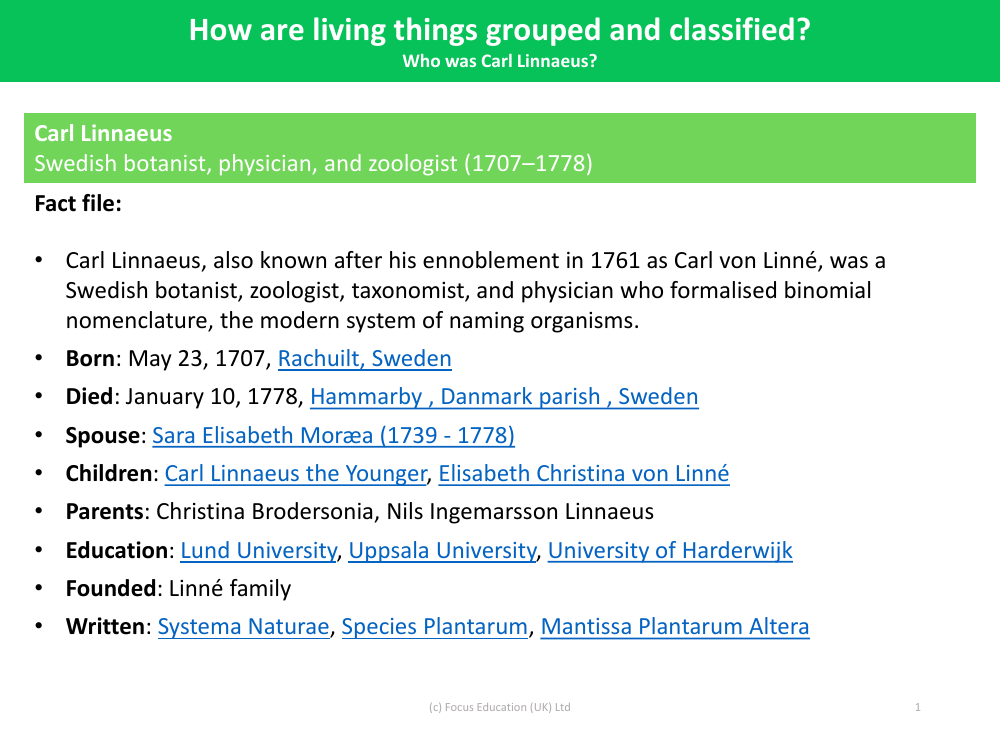Carl Linnaeus - Info sheet

Science Resource Description
Carl Linnaeus, a renowned Swedish botanist, zoologist, and physician, is celebrated for formalising binomial nomenclature, the modern method for naming organisms. Born on May 23, 1707, in Råshult, Sweden, Linnaeus was also known as Carl von Linné following his ennoblement in 1761. His significant contributions to science include founding the Linné family and authoring seminal works such as 'Systema Naturae', 'Species Plantarum', and 'Mantissa Plantarum Altera'. Linnaeus's legacy extends beyond his publications, as his work laid the foundations for the systematic classification of living things, a crucial aspect of biology and taxonomy.
Throughout his lifetime, Linnaeus was not only committed to the scientific community but also to his family. He was married to Sara Elisabeth Moræa from 1739 until his death on January 10, 1778, in Hammarby, Danmark parish, Sweden. They had children, including Carl Linnaeus the Younger and Elisabeth Christina von Linné. His academic journey took him through prestigious institutions such as Lund University, Uppsala University, and the University of Harderwijk, where he developed the expertise that would influence generations of scientists and naturalists worldwide. Linnaeus's classification system remains a cornerstone of biological nomenclature and the study of biodiversity.




